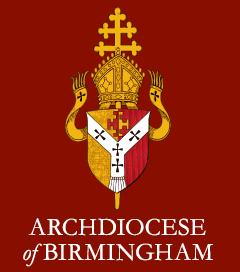Phonics
Intent
At St Joseph’s Catholic Primary School, we value reading as a key life skill and are dedicated to enabling all our pupils to become lifelong readers. The teaching of systematic synthetic phonics is a high priority throughout our Early Years Foundation Stage and Key Stage 1. We acknowledge that children need to be taught the key skills in segmenting and blending to be equipped with the knowledge to be able to complete the phonics check at the end of Year 1. We also value and encourage our pupils to read for enjoyment and recognise that this starts with the foundations of acquiring letter sounds, segmenting and blending skills.
Implementation
Phonics is taught daily to all children in Nursery, Reception and Key Stage 1. Extra support lessons are provided to those pupils beyond KS1 who are working below their age expectations.
All staff are trained and supported regularly through internal and external training. Staff use daily planning designed specifically to support the children at St Joseph’s; this planning uses Letters and Sounds: The Code grapheme-phoneme progression and correspondence. Each phonics lesson is organised using the principles of: revision of previously learned graphemes, teaching new graphemes, practising in order to read and spell new words, application of new graphemes through activities to secure knowledge and assessing in order to monitor progress between lessons.
In order to ensure clear progression, all lessons are organised into Phases according to The Code. Nursery begins their phonics journey in Phase 1 by exploring sounds around them, rhyme, segmenting and initial sounds. During Reception, children learn single letter sounds in Phase 2 to blend and spell VC and CVC words. They continue their phonics journey exploring digraphs and trigraphs in Phase 3 and complete Reception by completing Phase 4 where they combine their phonics knowledge with additional consonant blends. During Year 1 children revise Phase 4 before moving onto alternate spellings and sounds during Phase 5. The phonics programme is complete with the final stages of exploring irregular spellings, suffixes and prefixes and grammar in Year 2. Children are assessed at the end of each phase using Letters and Sounds end of Phase assessments to ensure that the children have met the end of phase expectations. Children who have not successfully completed a phase have continued support in smaller groups or 1:1 interventions.
All children’s books are matched to the Smart Kids resources which are matched to daily lessons in each Phase and matched to the phoneme the children are learning. In order to support the children’s fluency, they have regular 1:1 reading throughout Reception and into Year 1 and continue reading decodable books to match fluency as they progress through each of the phases.
Impact
As a result of our high quality phonics provision, children make good progress from their starting points. The vast majority are ready for the next stage in their education as they transfer through Early Years, Key Stage 1 and into Key Stage 2. Many children accelerate progress during these years from baseline below ARE to meeting expectations in phonics, reading and writing.
Following the introduction of a validated phonics scheme as well as correctly matched books to children's progress in the scheme, phonics outcomes at the end of Year 1 have been at least in line with national averages. Reading and writing outcomes at the end of EYFS have exceeded the national average and the children are taught in a consistent and systematic approach.
We firmly believe that reading is the key to all learning and so the impact of our phonics and reading curriculum goes beyond the results of the statutory assessments and can be seen in success across the curriculum as children progress through the school.


